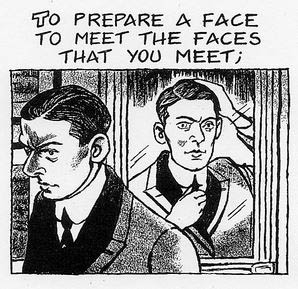“Before we sing the next stanza, let us take a moment to greet one another this morning.”
My first instinct is to bolt.
In some traditions, they call this time of greeting one another in church “passing the peace.” Perhaps, if I knew it as that, perhaps if my husband and I had come into traditional church settings in a different denomination, I would not mind so much these few awkward moments …
Smiling, shaking hands of people whose names I should know by now.
If I had been given the words to speak—”the peace of God be with you” … “and also with you,” I would understand the time is just that: the passing of that peace which—at times unexpected and unlooked for—passes understanding.
I would gladly give and receive such a blessing.
These are the moments in church that I did not miss at all when the pandemic kept us home for months on end. In fact, they were some of the sweetest times for our family, I felt.
Instead of the stress of getting up and getting ready and dressing to look decent and making sure the children had pants that were long enough or hair that was brushed or shoes that didn’t have holes in them, we simply gathered in the living room and tuned in to the pastor giving a message on Facebook Live.
Then, during the break between the Sunday school hour and the main service, my husband and I would duck into the kitchen and make waffles or eggs and bacon, or pancakes. Then we would gather around the table and eat while watching the second service.
I feel it brought our family together more than going to church and the stress of it ever had. Passing the eggs and bacon instead of handshaking awkwardly.
We headed back to church, as many families did, after the pandemic restrictions were lifted … but one thing that was not reinstituted for a long time was the handshaking time. That’s what it’s called in our church.
I get enough handshaking when I first step into church to last me all week. And then I get more of it either between services or when I’m heading out the door after church.
I really don’t need more handshaking in the middle of a song but that’s exactly what happens. We sing the first stanza and then the pianist continues to play while we “greet one another” …
Or in my case, stand awkwardly and wait for someone to meet my eye so I can offer them a genuine smile and more than a quick handshake then move on to the next person.
But then, recently I read about this moment traditionally being called passing the peace.
That resonated with me.
It’s not about just shaking as many hands and it’s possible before scooting back to your place by the time the hymn continues.
It’s about offering the peace of Christ.
“Peace of Christ to you” or “Peace of the Lord” – an offering of peace, of reconciliation, hope, ordinary kindness.
A lot of people these days don’t attend church. If it were just up to me, I’m not sure that I would either. Worship in group settings doesn’t come naturally to me; perhaps my upbringing in a cult has something to do with this.
I often get a lot more out of listening to music or reading on my own than in a group setting where I’m tuning into what’s going on all around me …
- considering the reactions of other people
- thinking deeply as highly sensitive people tend to do
- noticing how someone seems to be down
- wondering why this person’s remark seemed a little odd
- worrying about a comment I made
- hoping I didn’t come across the wrong way
But at the same time, I understand the draw of meeting together, and I appreciate it at the times when I don’t really feel like talking to anyone and yet someone sits next to me and asks how I’m doing, when I can see concern in their eyes, feel that true friendship, and they offer to me peace.
And I take it and offer it to them and to others.
I offer it to you.





 How carefully do we HSPs sometimes have to “prepare a face” to meet the outside world?
How carefully do we HSPs sometimes have to “prepare a face” to meet the outside world? Sometimes we HSPs even worry our place disturbs the universe at large.
Sometimes we HSPs even worry our place disturbs the universe at large. … Shall I part my hair behind? Do I dare to eat a peach?
… Shall I part my hair behind? Do I dare to eat a peach? First of all, why would you be loaning books to friends?
First of all, why would you be loaning books to friends?